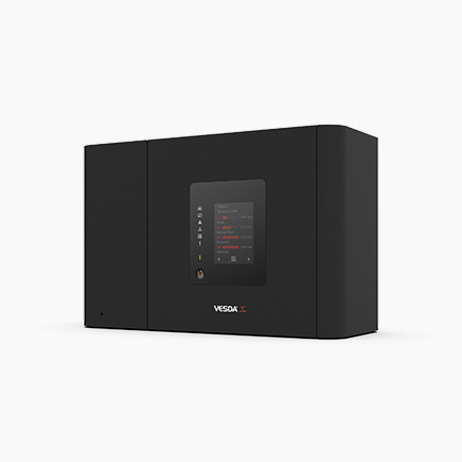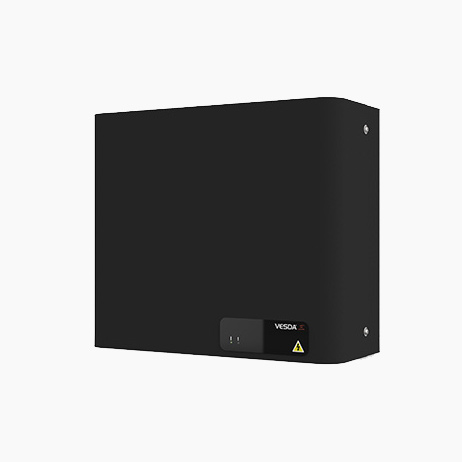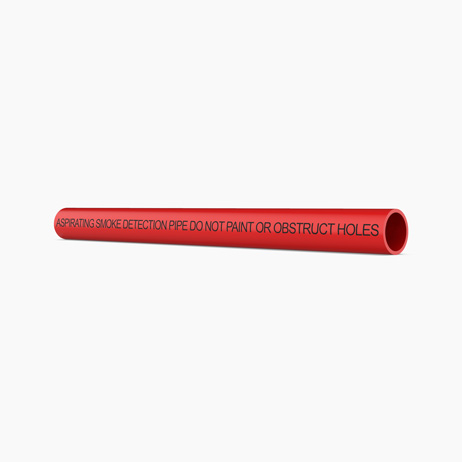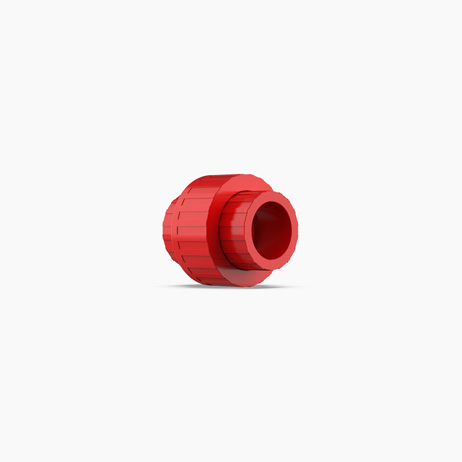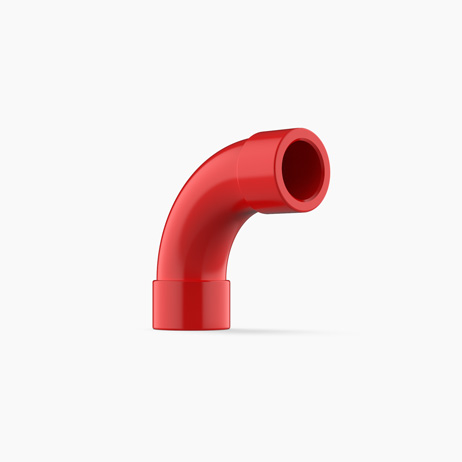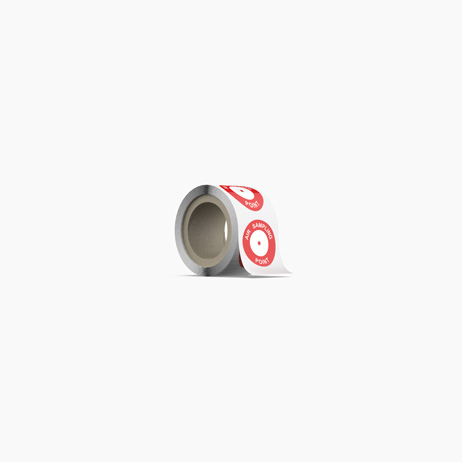An atrium is a large open-air or skylight covered space in a building. Atria were a common feature in ancient Roman buildings, providing light and ventilation to the interior. Modern atria are usually several storeys high with a glazed roof or large windows and are typically situated just beyond the main entrance of a building.
Large atria have become a popular design feature due to the feeling of light and space that they create. They are popular with building users, designers and developers which means that they have become a key feature of many modern buildings. Visitors to these buildings enjoy the dynamic and stimulating interior that combines the visual link with the outside environment while providing shelter from the elements and designers revel in the opportunity to create such elaborate spaces and often see atria as prestigious amenities that increase commercial value and appeal.
As with all public spaces, it is crucial that a suitable fire detection system is installed within any atria to protect lives and property from fire.
What are the Challenges
Atria pose some unique smoke detection challenges. Unlike a typical room or space in a building they can be very large, very high and uncommon shapes:
- High Ceilings
- Traditional detection types can struggle with high ceilings and cause big delays in the detection of smoke. If the ceiling is particularly high, smoke stratification can occur making a fire event harder to detect.
- High Airflows
- Large open spaces often come with high and unpredictable airflows. Doors opening and closing and varying levels of pedestrian traffic can all cause the air in such a large open place to behave erratically. Smoke can move unpredictably through the air and become diluted, causing huge delays in detection time.
- Cooling and Heating Systems
- Heating and cooling systems can also cause unpredictable airflow, again, making it much harder for traditional detectors to detect the presence of smoke.
- Aesthetics
- Atriums are very grand parts of a building, sometimes with elaborately decorated ceilings and walls – they are usually designed to provide an impactful entrance to a building. Therefore, traditional type detectors can be considered an eyesore.
Handpicked Products for Atria
VESDA aspirating smoke detection provides the perfect solution for atria applications. They use powerful aspirating fans to draw air from the protected areas. Therefore, they are not affected by high ceilings or unpredictable airflows. They are capable of detecting the smallest presence of smoke often before it is even visible to the human eye.
A network of air sampling pipes is used to carry air from sampling points in the protected area to the detection unit. Sampling points can be installed discreetly in the atrium ceiling and detectors can be installed outside of the protected area, such as in a store room or other back-office location.
Aspirating Smoke Detectors
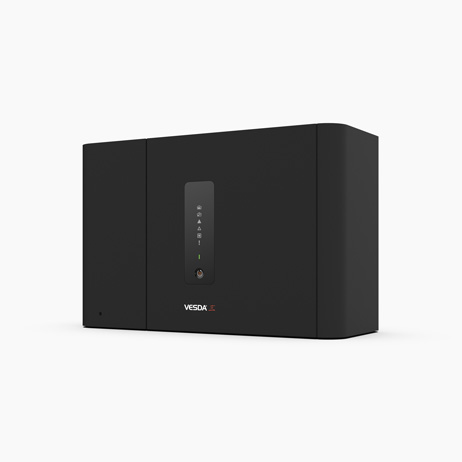
These detectors use advanced flair technology to deliver a very early warning of fire with reduced false alarms. The VESDA-E VEP range offers optical protection, absolute calibration and a smart on-board dust filter.
Power Supply
ASD Pipe & Fittings
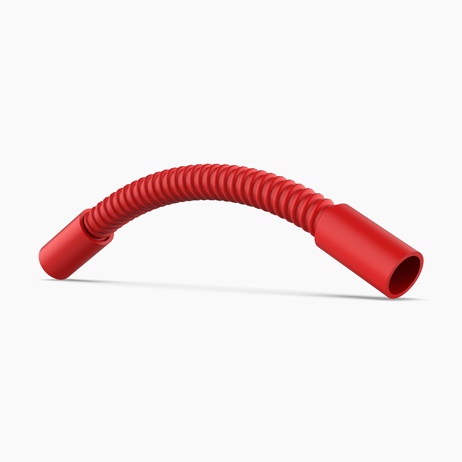
Flexible connectors are installed where a bend or elbow are not suitable. The flexible connector is strengthened internally with a steel wire and can be mounted in any direction without reducing the flow of air.
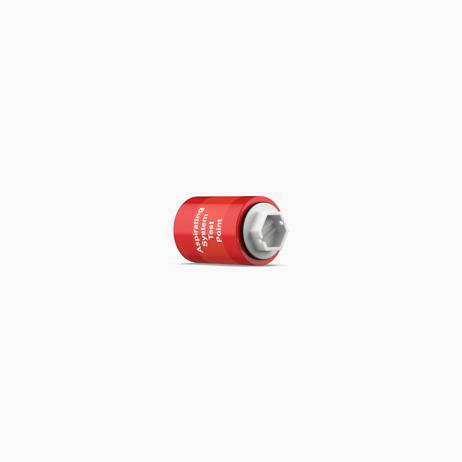
Air sampling test points allow for functional smoke testing of aspirating smoke detection systems and are typically located at the end of a sampling pipe network.
Why Choose Eurofyre?
- Complete System Supplier
- Eurofyre is a complete system supplier and has been a major Xtralis technical wholesaler since 2007. This means we can offer expert advice and supply all aspects of fire detection including aspirating smoke detection systems, conventional and addressable fire alarm control panels and linear heat detection.
- Pipework Design
- Eurofyre can also provide assistance with aspirating pipe network design to ensure optimum network performance and installation quality.
- Demonstration and Training
- We have a sophisticated training facility where we offer demonstrations and expert training on a range of systems, including VESDA-E aspirating smoke detection systems.
- After-Sales Support
- Eurofyre prides itself on providing after-sales care and support that is second to none. We offer both on-site and telephone assistance to help you ensure that your system is fully operational and working at its best.
For more information about VESDA aspirating smoke detection, or to discuss any of the other products that Eurofyre have to offer, please feel free to get in touch either by phone on +44 (0) 1329 835 024, by email to [email protected] or via the online enquiry form situated on our contact page.
Don’t forget you can follow us on LinkedIn, Twitter and Facebook or sign up to our newsletter (in the footer below) to receive all the latest information from Eurofyre.
